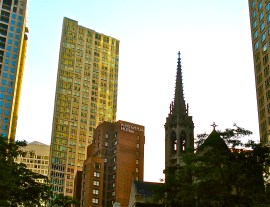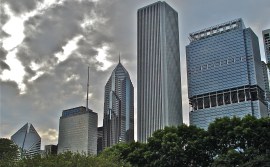 For 3.5 years now, we have been praying for and seeking contentment. We struggled through finding our place in post-college life, when work takes over and friends can be hard to find. Our callings and passions seemed to be stifled and replaced with obligation. The task of balancing monotony with a living, active faith can seem impossible. The best word for our predicament: stuck. But God is good and taught us a million and one things even in the midst of frustration, including 1) Invest where you find yourself, even if it doesn’t seem ideal. God is always working. Don’t be so dull as to think that He halts His plans for us just because we are frustrated. Jump on board, or He’ll find other means, and we will be the ones that miss out. 2) Don’t be afraid to make changes to align your life with your convictions. The best decision we made was to take a “risk” to move to downtown Roanoke. Our living situation finally began to align with our belief in the importance of sustainability and stewardship. God has been faithful through our move to display that risk brings reward – bringing the assurance that it wasn’t as risky as we had perceived it to be. This critical decision led us to a church community downtown, where our apartment became a place of ministry in our city.
For 3.5 years now, we have been praying for and seeking contentment. We struggled through finding our place in post-college life, when work takes over and friends can be hard to find. Our callings and passions seemed to be stifled and replaced with obligation. The task of balancing monotony with a living, active faith can seem impossible. The best word for our predicament: stuck. But God is good and taught us a million and one things even in the midst of frustration, including 1) Invest where you find yourself, even if it doesn’t seem ideal. God is always working. Don’t be so dull as to think that He halts His plans for us just because we are frustrated. Jump on board, or He’ll find other means, and we will be the ones that miss out. 2) Don’t be afraid to make changes to align your life with your convictions. The best decision we made was to take a “risk” to move to downtown Roanoke. Our living situation finally began to align with our belief in the importance of sustainability and stewardship. God has been faithful through our move to display that risk brings reward – bringing the assurance that it wasn’t as risky as we had perceived it to be. This critical decision led us to a church community downtown, where our apartment became a place of ministry in our city.
In the parable of the talents, the servants who invested and received a return on the money their master gave them received praise- “Well done, good and faithful servant. You have been faithful over a little; I will set you over much. Enter into the joy of your master.” Like our situation, God has continued to display that the ordinary, every-day decisions matter. Faith doesn’t only come alive in the extraordinary, and faith doesn’t resolve. Instead it leaves loose ends, loose ends in which we put our faith and trust in God to ultimately tie up (Hebrews 11).
And so our faith story is bringing us to yet another challenge…Chicago. Although we have been talking about the idea of moving to Chicago for about 4 or 5 years now, it would still be easier to ignore opportunity and God’s prompting for the sake of comfort and familiarity. It is exciting and terrifying all at the same time. It is a decision that we have not taken lightly and was not easy to make, and so we move to the city at the end of June! We can’t thank our friends and family enough for their persistent prayers, advice, and encouragement along the way, and we certainly can’t even describe how much we will miss all of you. We see this as a continuation of what has been stirred in our hearts: city- vibrancy, culture, diversity, opportunity, community, connection, architecture.
Cities embody the ideas of humanity. How can we ignore the necessity of the gospel being present as an idea in the city? Paul didn’t. He deliberately chose to minister in the seemingly “God-forsaken” cities and appealed to them to consider the idea of one sovereign God. In Acts 17:24-28 he says to the scholars of Athens, “The God who made the world and everything in it, being Lord of heaven and earth, does not live in temples made by man, nor is he served by human hands, as though he needed anything, since he himself gives to all mankind life and breath and everything. And he made from one man every nation of mankind to live on all the face of the earth, having determined allotted periods and the boundaries of their dwelling place, that they should seek God, in the hope that they might feel their way toward him and find him. Yet he is actually not far from each one of us, for ‘in him we live and move and have our being’, as even some of your own poets have said, ‘for we are indeed his offspring.’”
For us, each time we visited the city, we were always surprised to hear people say, “Yes, we need you here.” It is no accident that Chris has been wanting to move to Chicago practically his whole life, or that I somewhat randomly decided to major in architecture and developed a love for all things urban. God has orchestrated our passions and our pathway, even in bringing us together. We do not know how things will unfold or how long this chapter will be, but we take this step in faith with expectancy….
Now faith is the assurance of things hoped for, the conviction of things not seen. – Hebrews 11:1 (ESV)



